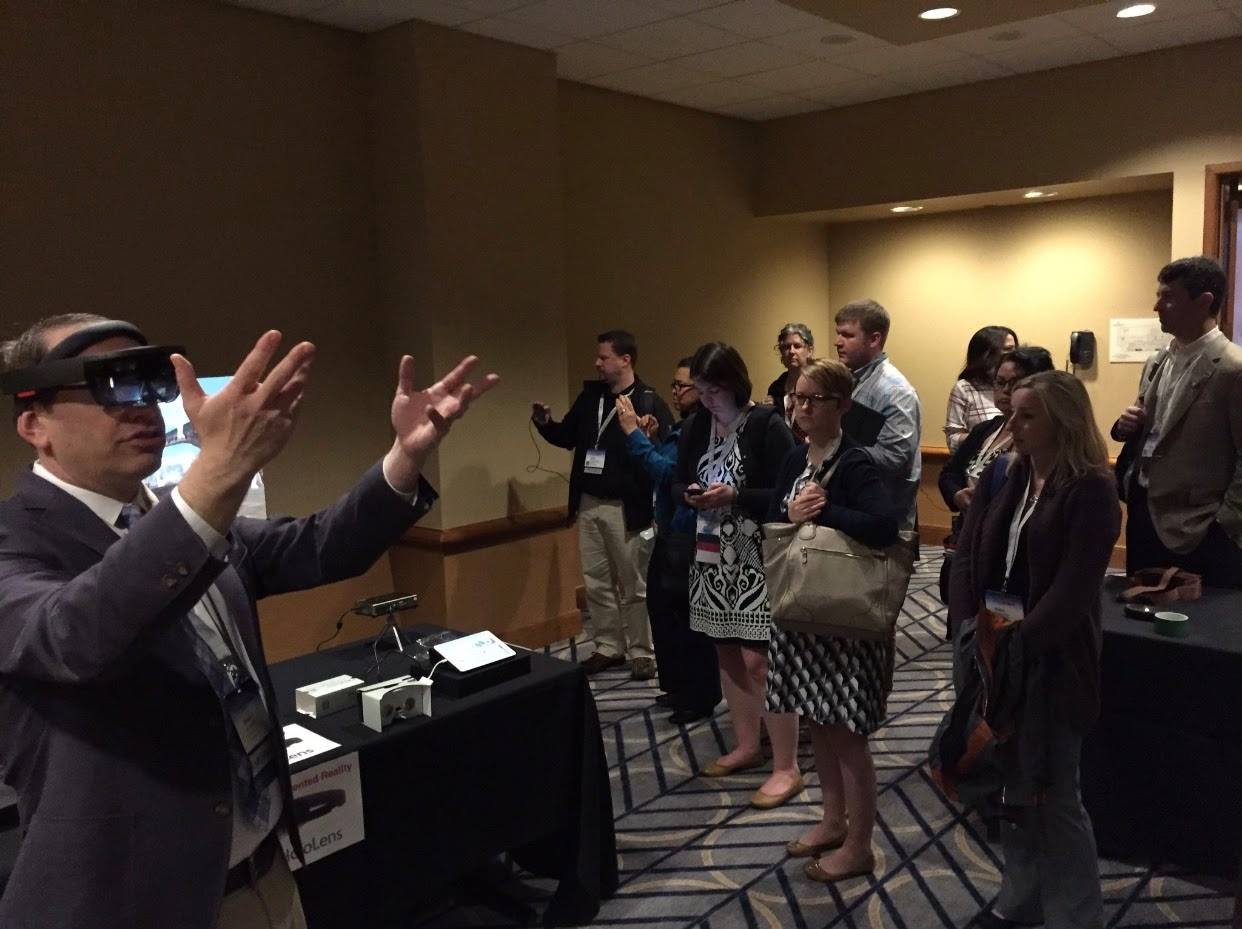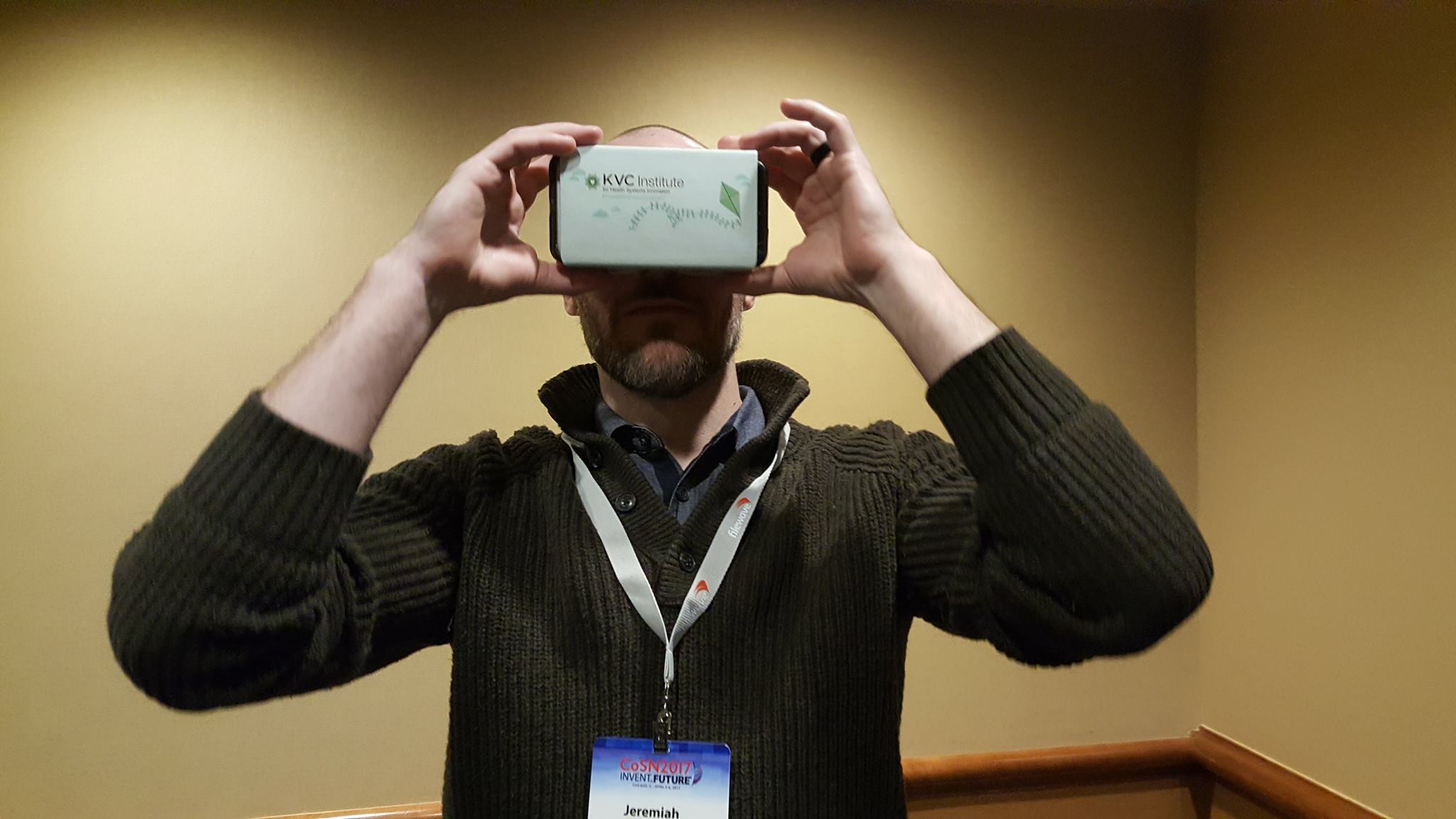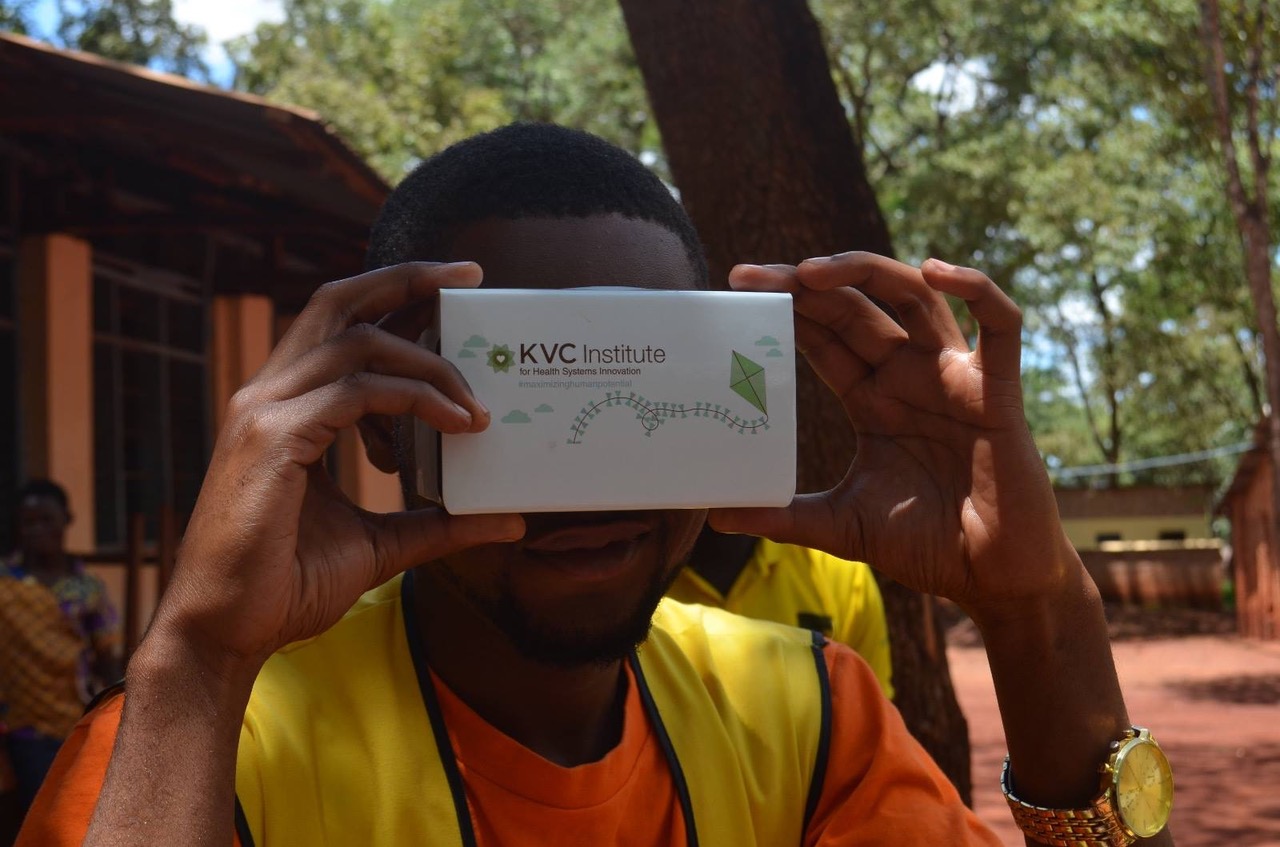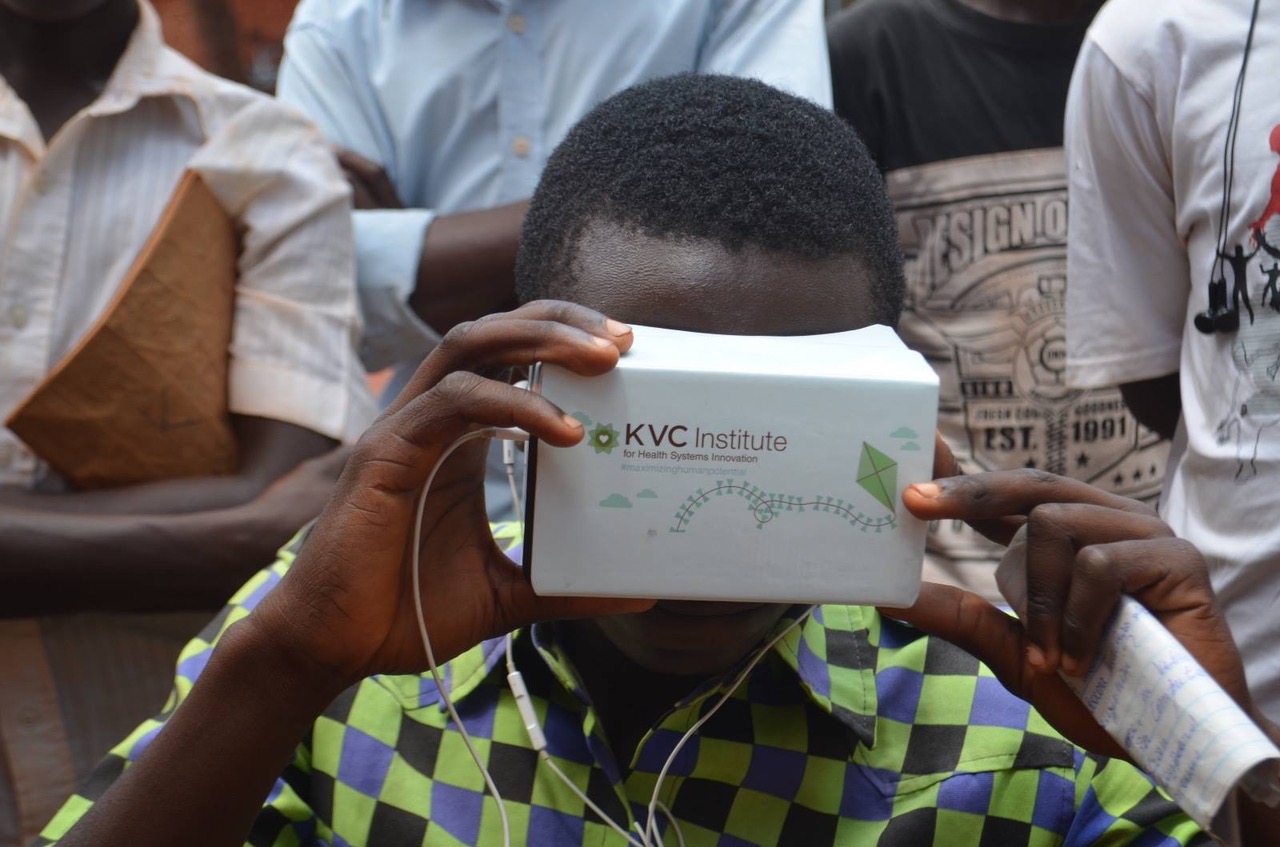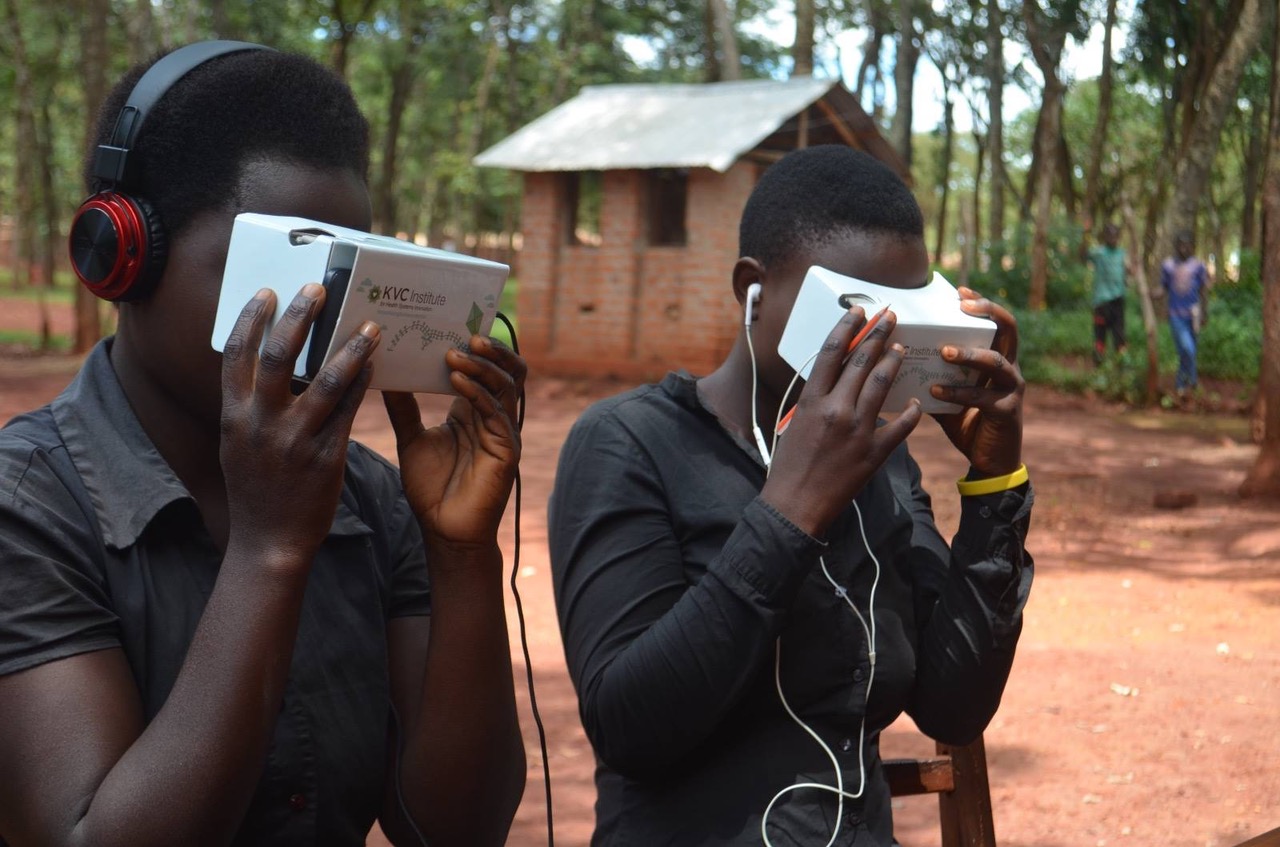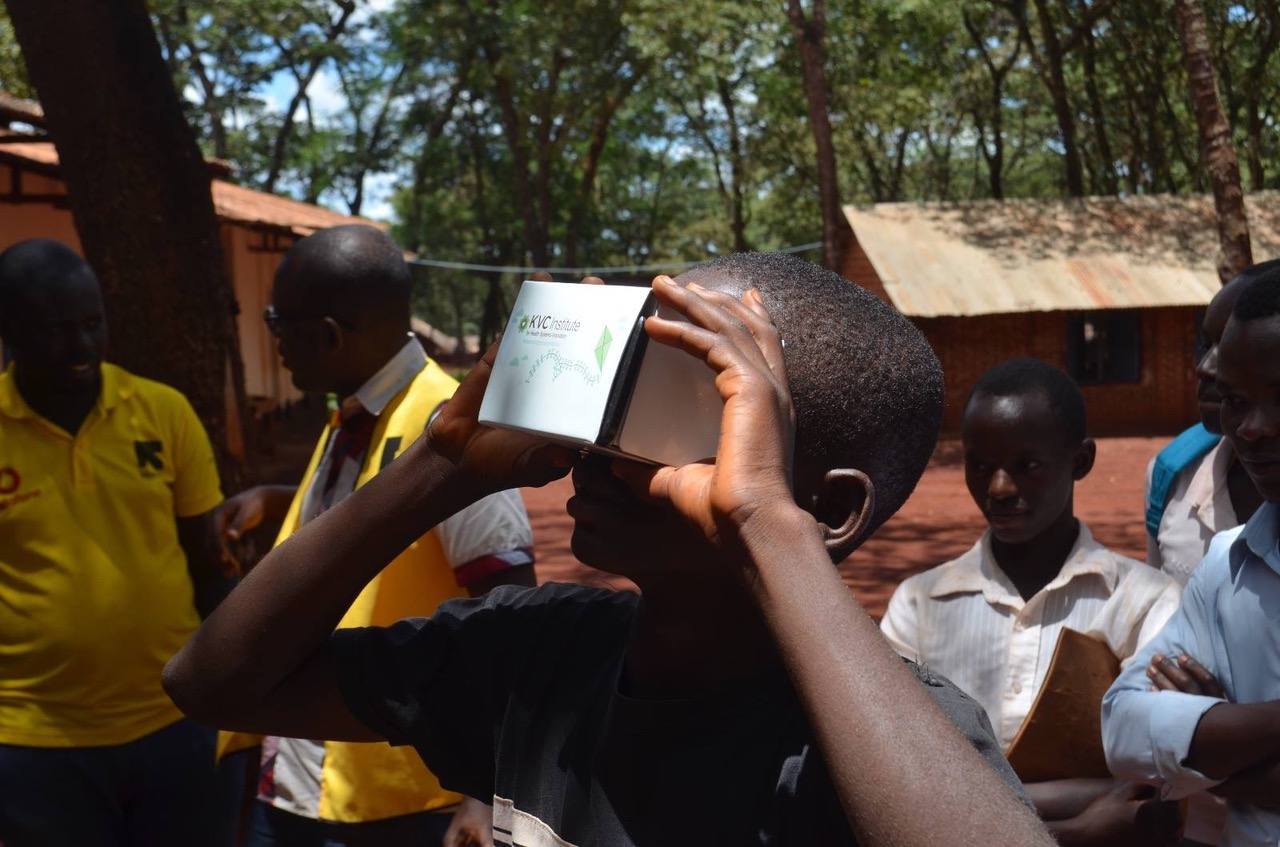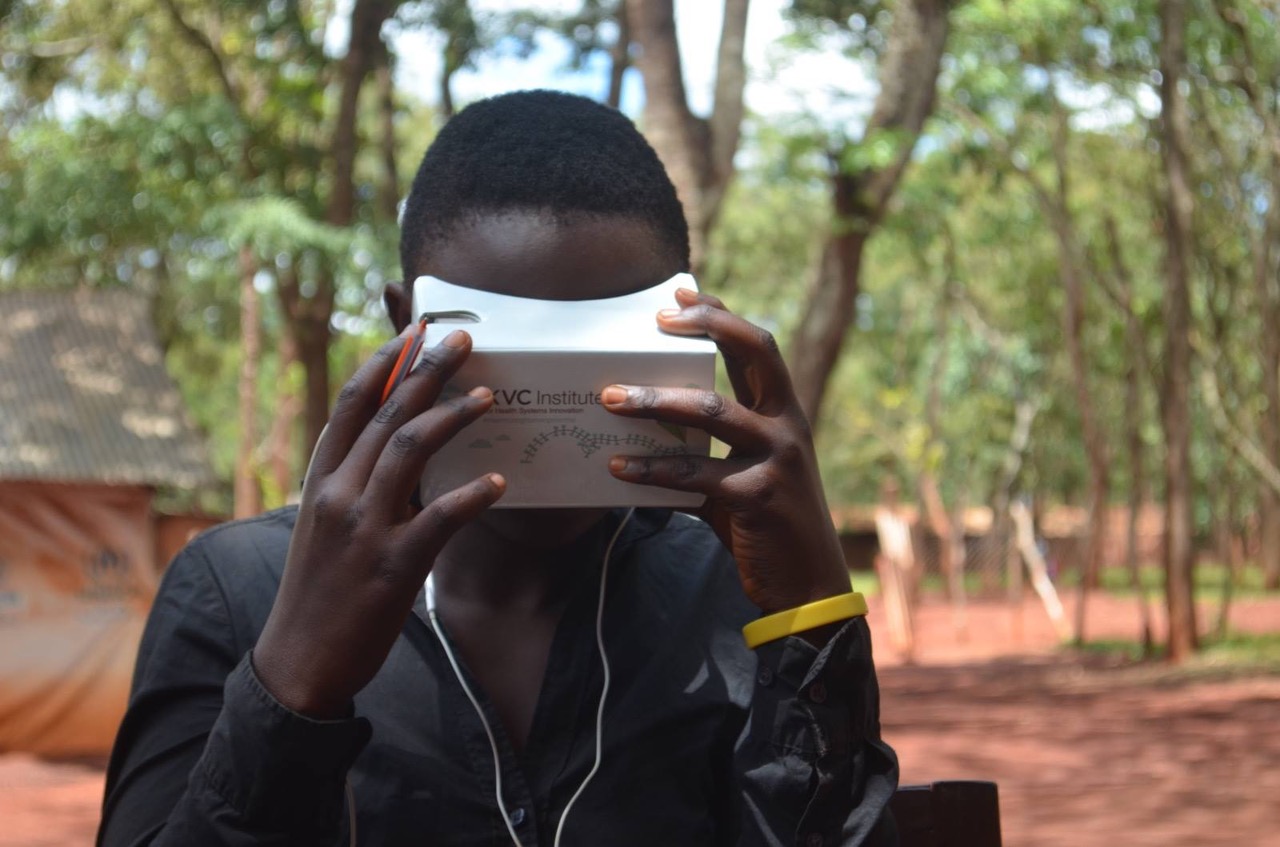KVC Institute Showcases Virtual Reality to Treat Trauma, Depression and Anxiety
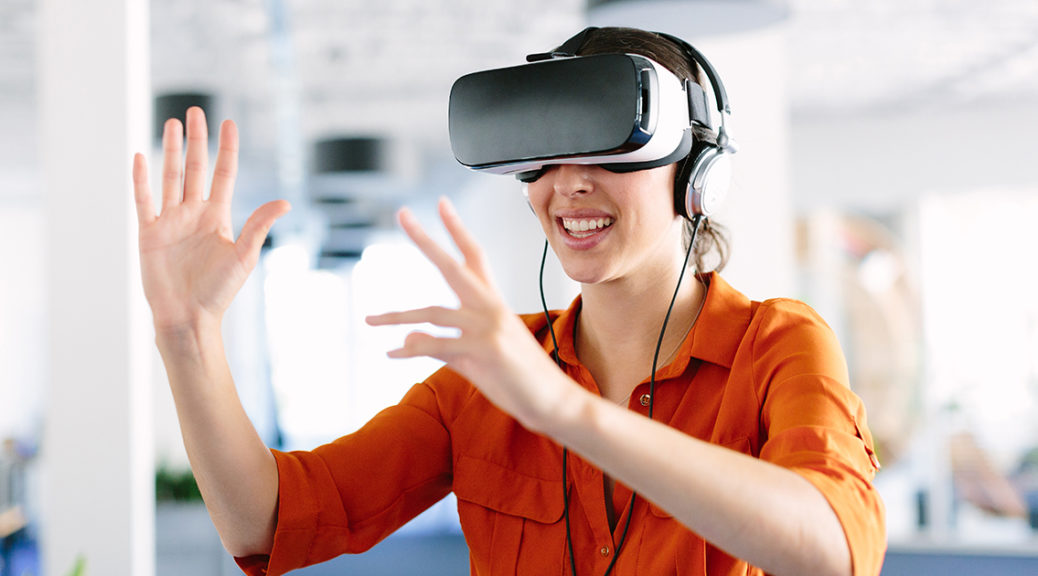
Virtual reality (VR) was a top tech gift over the 2016 holiday season. VR allows individuals to experience and interact in a 3-dimensional environment, and the KVC Institute for Health Systems Innovation has introduced this technology into mental and behavioral healthcare treatment.
The KVC Institute, which is the research, training and consultation arm of KVC Health Systems, is one of the first behavioral healthcare providers to evaluate the use of virtual reality for children and teens affected by trauma, depression and anxiety. KVC has used VR in treatment sessions at Camber Children’s Mental Health in Kansas City, Kansas to help youth practice mindfulness and decrease anxiety.
“Immediately we could see that using VR in therapy created joy and excitement, which as a clinician is amazing to see in trauma focused treatment,” said James Roberson, Vice President of Program Services at Camber Children’s Mental Health. “After the novelty began to decrease we were even more excited to see the calm and real curiosity the VR experience provides. Children are showing us new ways to use VR everyday.”
The VR sessions used in behavioral treatment facilitate new approaches to meditation, exploration of different environments and landscapes, and art and expression therapy. Youth can create personalized pathways to allow them to visit a place in virtual reality where they feel safe or happy. This technology creates a sense of engagement that is far stronger than other treatment modalities. Through treatments, the KVC Institute determined that VR has the potential to enhance clinical practices through role-playing, sensory integration, executive function, socialization, decision-making, and pleasant imagery.
“VR technology takes down the walls of traditional ways of learning and opens a world of creative possibilities. The KVC Institute aims to unleash that creativity and maximize human potential,” said Sue Lohrbach, Executive Director of the KVC Institute.
Introducing VR Around the World
Shawn Gross, the KVC Institute’s Technology Innovation Officer, has been traveling the world sharing how VR can be used in treatment. Here are a few of the places he has been:
- In March, Gross attended the United Nations Educational, Scientific and Cultural Organization (UNESCO) Mobile Learning Week conference in Paris, France. He presented a workshop entitled, “Virtual Reality in Behavioral Health and Education for Displaced Populations” and demonstrated new virtual reality (VR) applications for delegates from over 30 countries. Attendees learned about virtual and augmented reality and got to experience some of the applications available for education and behavioral health.
- In April, Gross attended the Consortium for School Networking (CoSN) conference in Chicago to showcase VR to behavioral health therapists. Attendees got to experience how VR technology can deliver 3-D personalized and immersive content to help clients receiving treatment for depression, anxiety and trauma.
- Also in April, refugees from the Nyarugysu camp in Africa participated in a behavioral health therapy lesson using the KVC VR headsets. The camp is one of the largest refugee camps in the world, with over 150,000 refugees. Participants enjoyed using VR as a tool to help them identify and heal from their struggles.
To learn more about the use of virtual reality or the KVC Institute, visit www.kvc.org/institute.










